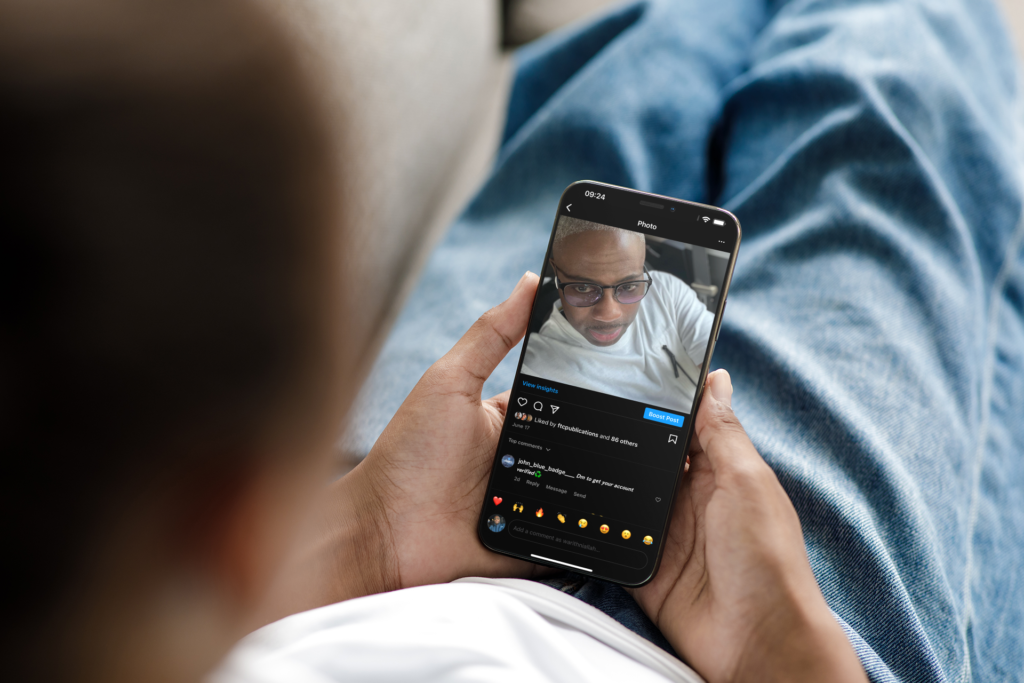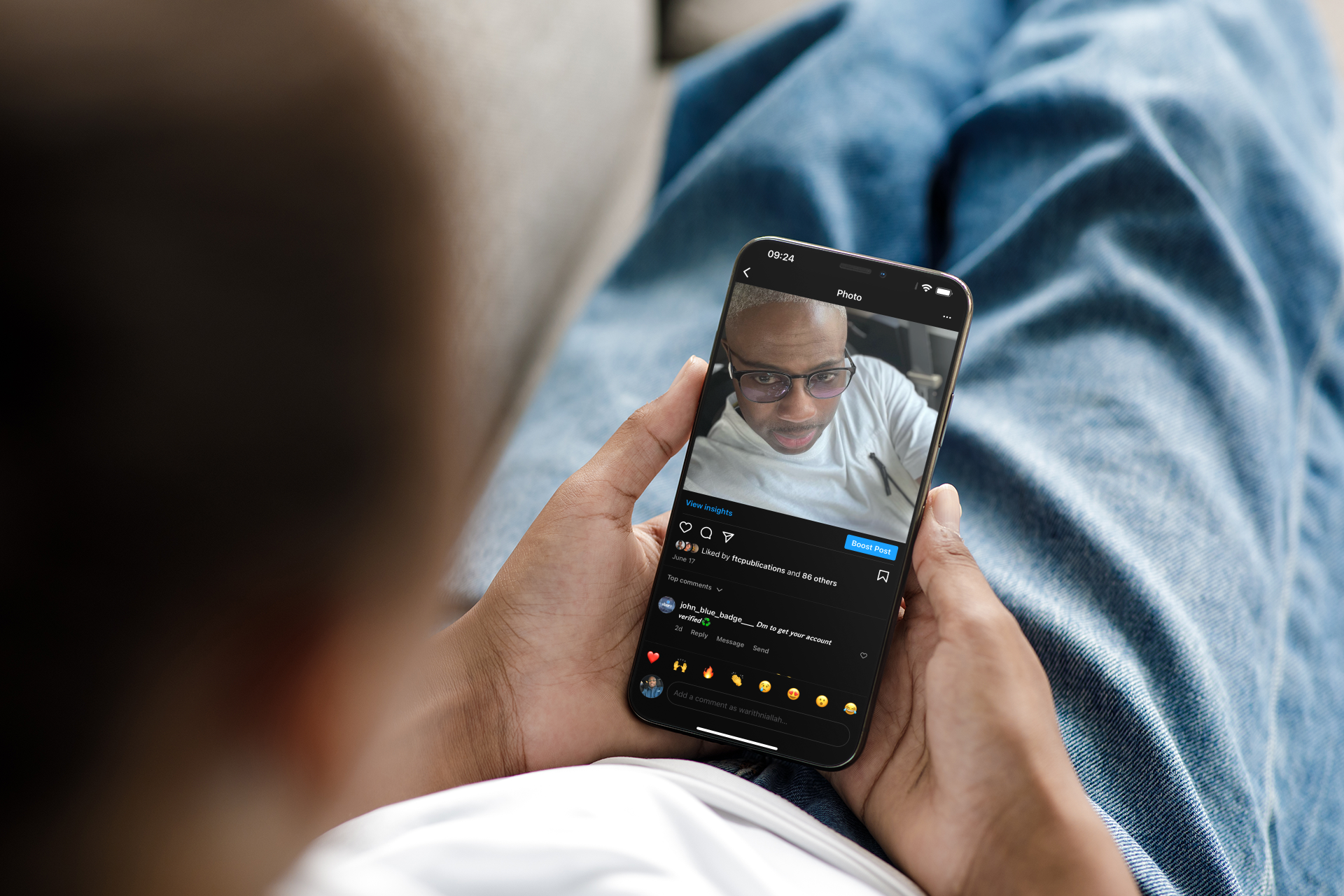Although social media companies like Instagram downplay the importance of verification, everyone knows it’s a sign of endorsement and a badge of prestige. Otherwise, it would not be difficult to obtain, and the criteria wouldn’t be inconsistent and secret. So it’s no surprise that scammers have taken advantage of users by falsely claiming to be able to verify their accounts in exchange for money.
The scam
The scam is simple: someone contacts you and says they can help you get verified on Instagram for a fee. They may even show you fake verification badges to convince you they’re legitimate. The problem is that once you hand over your hard-earned cash, it disappears, and you have nothing to show.

Worse yet, these scammers are often very clever and convincing, making it difficult to spot them before it’s too late. So how can you protect yourself from falling victim to an Instagram verification scam?
Here are a few things to keep in mind:
- Instagram will never ask you to pay for verification. They’re lying if someone claims they can verify your account for a fee.
- Be wary of anyone who contacts you out of the blue offering to verify your account. Scammers often pose as representatives from Instagram or other social media platforms.
- Don’t click on any links in suspicious emails or messages. These could be phishing attempts designed to steal your personal information.
- Never give out your personal information, including your email address, phone number, or credit card number, to anyone you don’t know or trust.
Other methods
Instagram verification scams often leave comments on users’ posts in an attempt to appear more legitimate. The words may be, “Hey, I can help you get verified! Just DM me,” or “This is the account I used to get verified. Message me if you want help.”

Please do not block the scam account if you want to be able to see it and grab screenshots for reporting it to Instagram. It’s important to remember that even if an account is suspended or removed, the scammer may create another one. So be vigilant and report any suspicious activity to Meta’s support team. Instagram is part of Meta and is by far the most discriminating of the social media companies when it comes to verification. Scammers know this and use tactics to trick users into thinking they can buy a verification badge.
These scammers also target minorities, and LGBTQ users, who they feel are more likely to be overlooked by Instagram’s verification process.
By being aware of these scams and taking steps to protect yourself, you can help keep your account safe and avoid becoming a victim of fraud.
Some scammers will also post fake verification badges as their profile pictures or as a comment on a popular post. These badges usually have the Instagram logo and a blue checkmark. Instagram has recently become one of the most popular social media platforms, with over a billion active users. Additionally, businesses and influencers use Instagram to promote their products and services and share photos and videos. However, with its popularity comes the risk of being scammed. There have been reports of scammers offering to verify users’ accounts for a fee and of fake verification badges being used to trick people into thinking an account is more legitimate than it is.
Be diverse in your presence
Do not rely solely on Instagram, as there are far more effective ways to reach out to the public and conduct business. Get a domain name and website in your name or your business. Utilize other social media platforms, and don’t think that the lack of a verification badge is a lack of legitimacy. Many verified accounts on Instagram are outright ridiculous, such as famous infants and celebrity pets, so don’t use it as a standard by any means.
Summary
An Instagram verification scam is when someone contacts you and says they can verify your account for a fee. They may pose as a representative from Instagram or another social media platform. Be wary of anyone who contacts you out of the blue offering to verify your account. Don’t click on any links in suspicious emails or messages; never give out your personal information.
Taking these steps can help protect yourself and others from becoming victims of social media scams.


